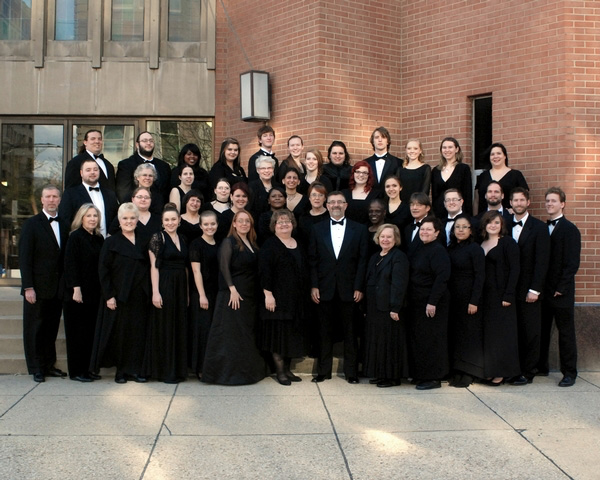 On Sunday, April 17, at 7:00 p.m. is the up and coming Chorale Choir, Chamber Choir and Women’s Ensemble that will perform “Requiem for the Dead” by Mozart. The show will take place at Shiloh Church, which is located at 5300 Philadelphia Dr., and will be conducted by Professor Nolan Long. Requiem by Mozart, according to Long, is a large choral work, with choir, soloists and orchestra parts. The Dayton Philharmonic will be playing the orchestra pieces.
On Sunday, April 17, at 7:00 p.m. is the up and coming Chorale Choir, Chamber Choir and Women’s Ensemble that will perform “Requiem for the Dead” by Mozart. The show will take place at Shiloh Church, which is located at 5300 Philadelphia Dr., and will be conducted by Professor Nolan Long. Requiem by Mozart, according to Long, is a large choral work, with choir, soloists and orchestra parts. The Dayton Philharmonic will be playing the orchestra pieces.
The choir groups performing are Sinclair’s Chorale Choir, Chamber Choir and Women’s Ensemble. The Chorale Choir consists of soprano, alto, tenor and bass parts. They typically perform folk music, significant choral repertoire and spiritual music from many different time periods and in many different languages.
The Chamber Choir performs classic choir music. Similarly to the Chorale Choir, they also perform folk music and spiritual music from a variety of time periods and in different languages. Finally, the Women’s Ensemble performs a variety of musical styles. Professor Long directs all three groups.
Mozart’s “Requiem” has parts meant for a single soloist and parts meant for a quartet; one soprano, one alto, one tenor, and one bass. A guest judge, Dr. Ryu-Kyung Kim, a voice teacher from University of Dayton, chose the soloists through an audition process.
Wolfgang Amadeus Mozart wrote “Requiem” in 1791. Mozart was a child prodigy, Long said that he was an amazing pianist and violinist. Mozart died in his 30s while he was in the midst of writing “Requiem.” No one knows for certain who finished the piece, but the most commonly accepted theory is that it was a man named Antonio Salerie and his wife, but historians don’t know for sure which parts were written by Mozart. Long explained that a “Requiem” is a song honoring the dead.
It seems “Interestingly awkward,” Long said. She noted that Mozart died while writing this piece, and there was a certain mystery to Mozart’s death as he wrote a Requiem. Along with this, Mozart is rumored to have said, “I fear that I am writing a requiem for myself.”
Zane Pergram, a Tenor in one of the quartets and a member of the chorale choir spoke about the emotions the Requiem creates.
“Mozart’s Requiem causes [the listener] to feel the pain of death. Not only does the music encompass… the tactile and physiological feelings of death… feelings such as anger, despair, and the grace of beauty,” Pergram said, “[Mozart] manages to put into the lyrics what he was feeling as he died and what it was like to lose a loved one.”
The full concert will be on April 17 at Shiloh Church. However, Long explained that there will be a “mini sampler concert” on Thurs., April 14. This mini concert is free, and will take place in Building 10, outside of room 315.
Micah Karr
Reporter

